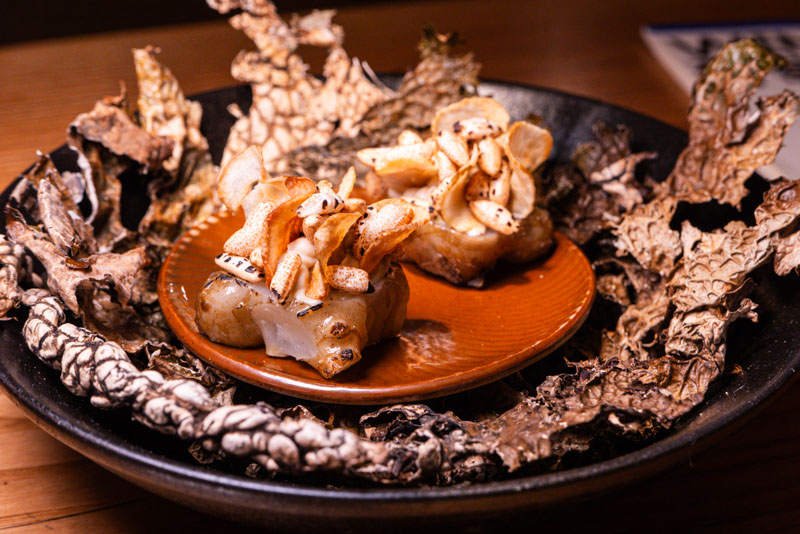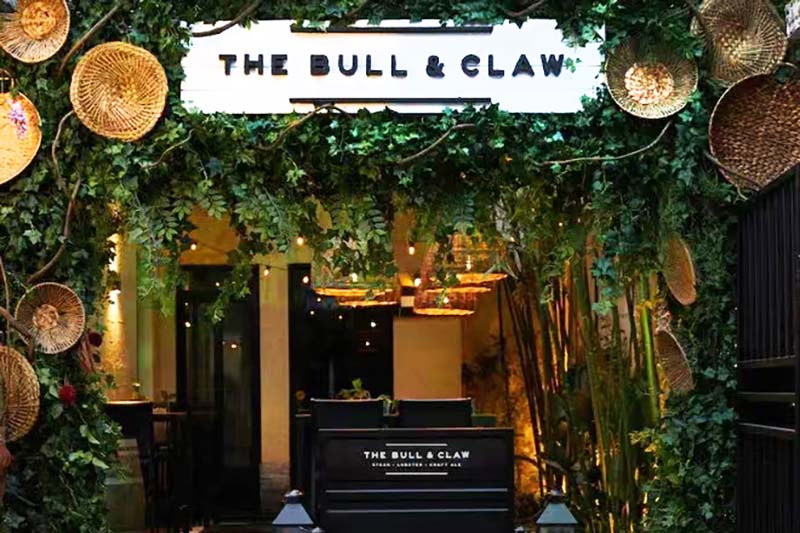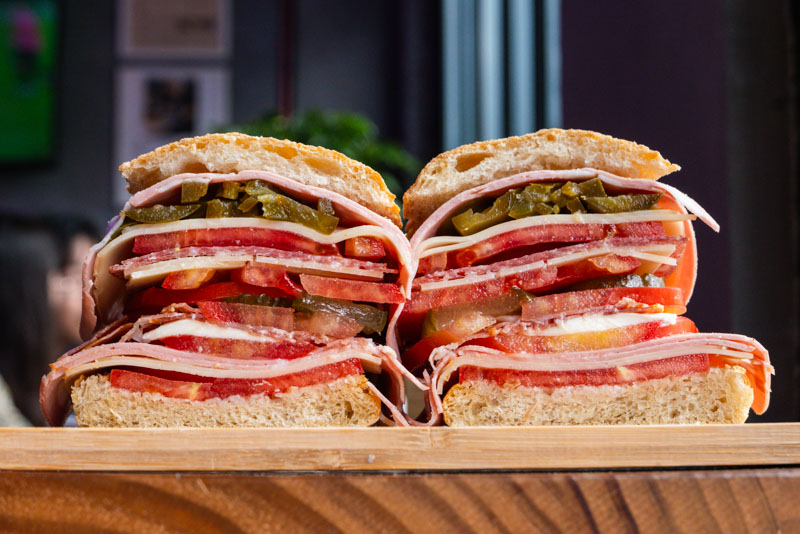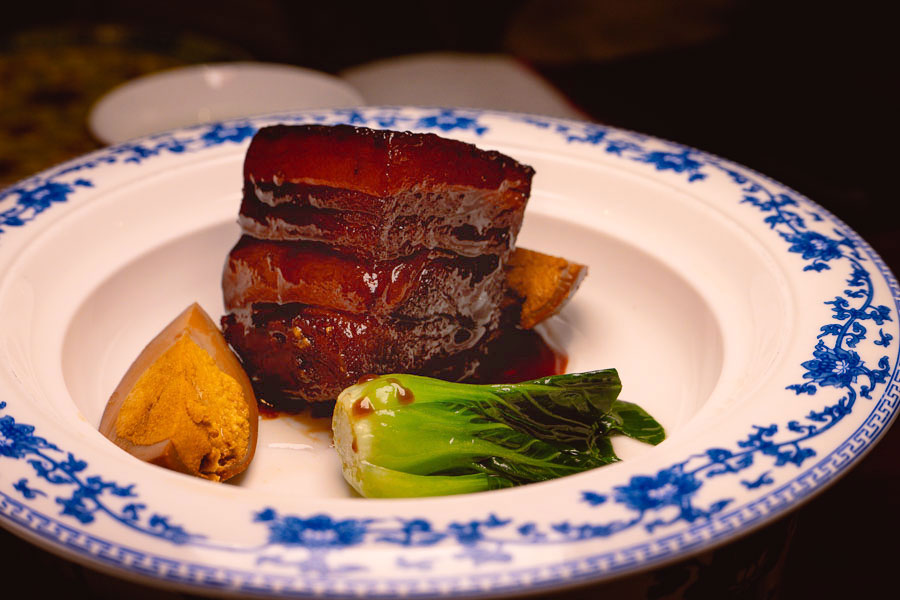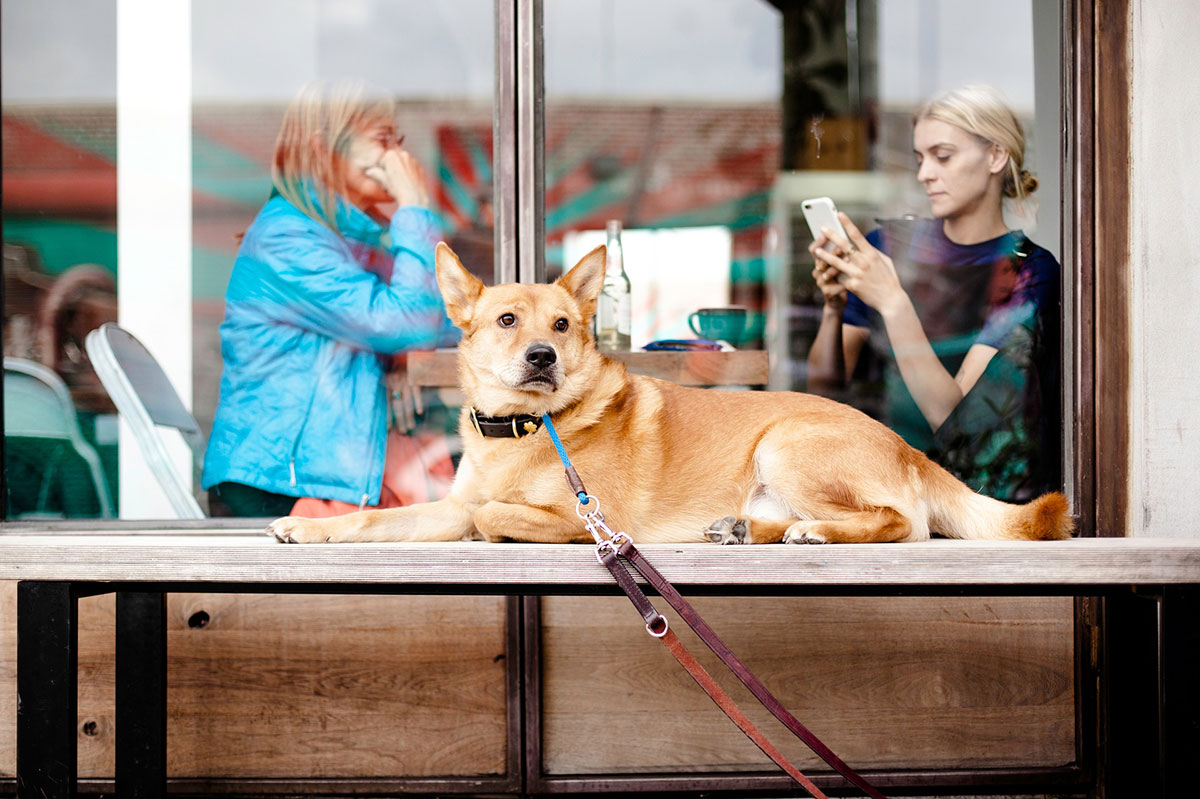OHA Eatery is doing something really cool with Malaysian cuisine, and is now serving a seasonal menu with dishes inspired by food from Kuching.
OHA Eatery – New Menu Program
Wait, OHA isn’t doing contemporary Guizhou food anymore?
Not for some time now.
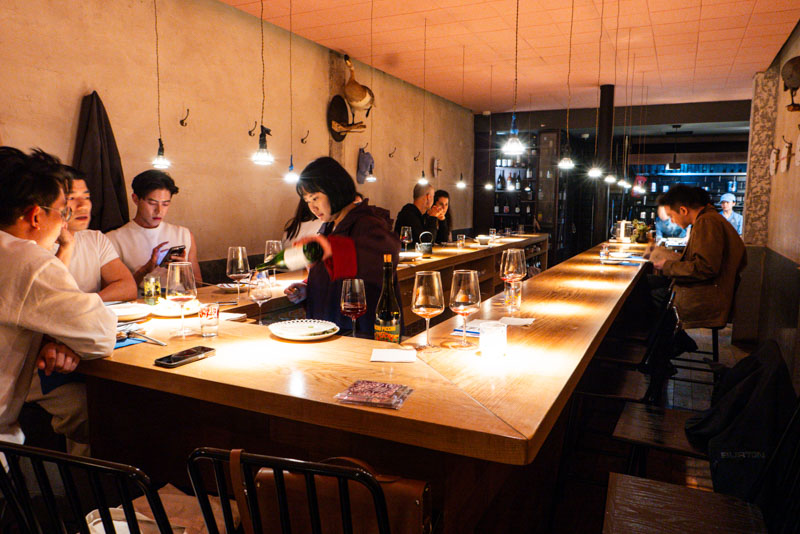
Since 2023, OHA Eatery launched a new dining program where they create four new menus a year, each inspired by different cities and regions from around the world. Previously, they featured Ho Chi Minh and Xiangxi (Hunan). Creation is led by chef Yang and restaurant manager Zhao Qian, who both journey to said destinations to find new inspiration for menus.
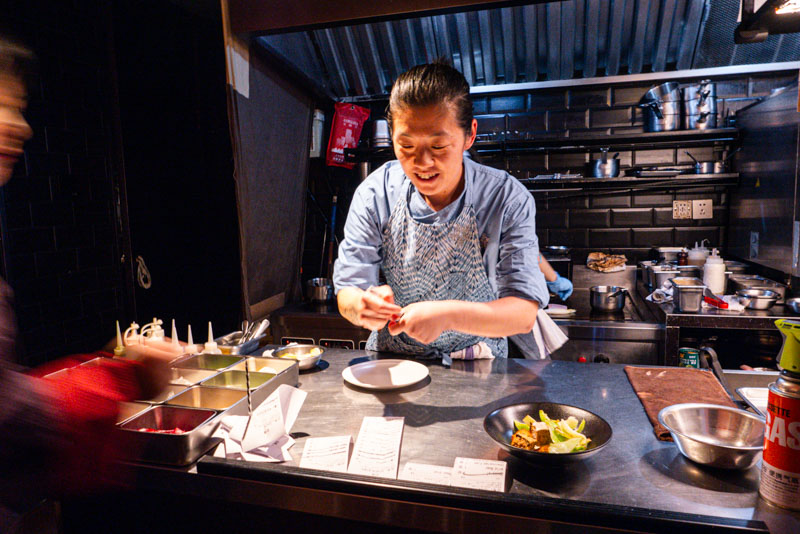
This season’s menu is inspired by Malaysian cuisine, specifically from Kuching, an eastern Malaysian city in the state of Sarawak on the Borneo Island.
The food is creative and refreshing. The dishes make for great conversation starters, especially for those who are food/culture-curious and for those familiar with Malaysian cuisine.
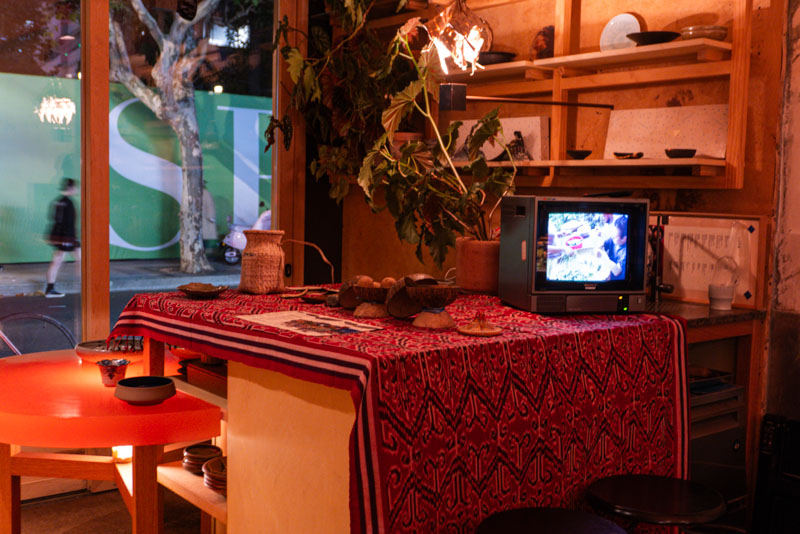
This is distinctive of what OHA has done in the past — to create interesting talking points and to push cuisine boundaries — and I’m glad that spirit is still around. Dishes from previous menus are also available, including some OHA classics, as well as vegetarian options.
The Kuching Menu
Dishes are available a la carte, or you can order all of them as a set for ¥615, which is made for two to share. The set satisfies on the flavor and diversity front, but I personally would have benefitted from ordering one or two more side dishes to feel full. (Maybe I had a large appetite that evening, so to each their own.)
Highlights include the Popia Bak Kut Teh Abalone, Sotong Laksa, and Burung Merpati Durian. That said, not every dish is for everyone, as there are some divisive ingredients (see: durian) on the menu.
The first dish is Ikan Kembung Kecil. Mackerel is marinated, then lightly torched before serving. It’s paired with carrot ribbons, pineapple and passionfruit gel, pickled green rhubarb, and pandan leaf oil. A few strands of torch ginger flower lend complexity with its piquant, sweet, and sour profile. The fish is fatty and oil-rich, and is complemented by the herbacous and fruity pairings.
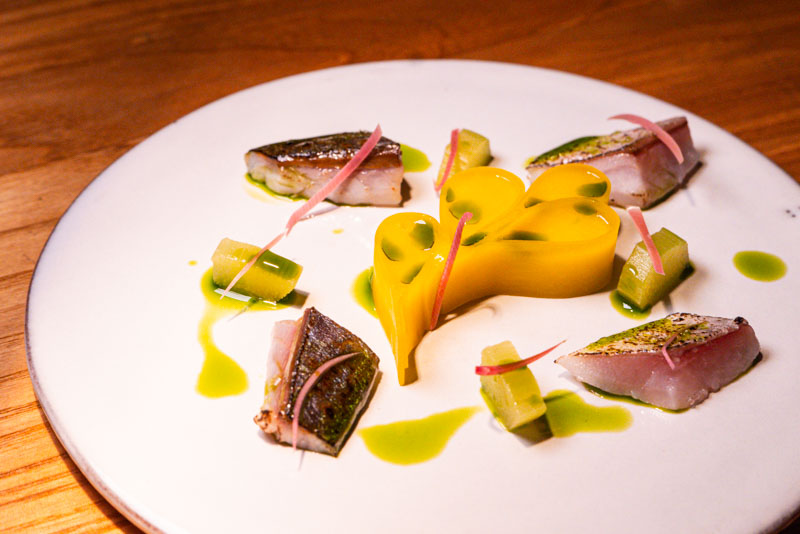
Next is another cold dish, Sarangga Sago. Deftly hidden within this captivating one-biter are bamboo insects and silkworm chrysalis, cultivated insects known for its high nutritional value. You wouldn’t know it was there, as it’s been transformed into a kind of cake, topped with roasted Jerusalem artichoke foam and chips, and puffed black rice.
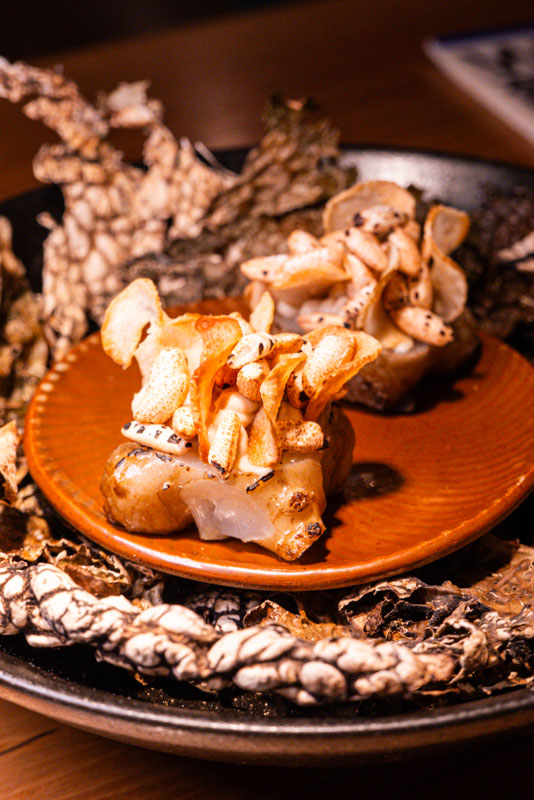
The Popia Bak Kut Teh Abalone is the most comforting course. Bak Kut Teh is an herbal pork soup made with Chinese herbs, flavored with sweet dark soy sauce. This is the Malaysian variety, not to be confused with the white pepper Singaporean version.
The broth is made with pork ribs and shank, cooked with various Chinese herbs like angelica root, astragalus, and licorice, to name a few. The soup is served in teacups to accompany the crispy and flavorful spring rolls, filled with fresh abalone, mushrooms, and pork.
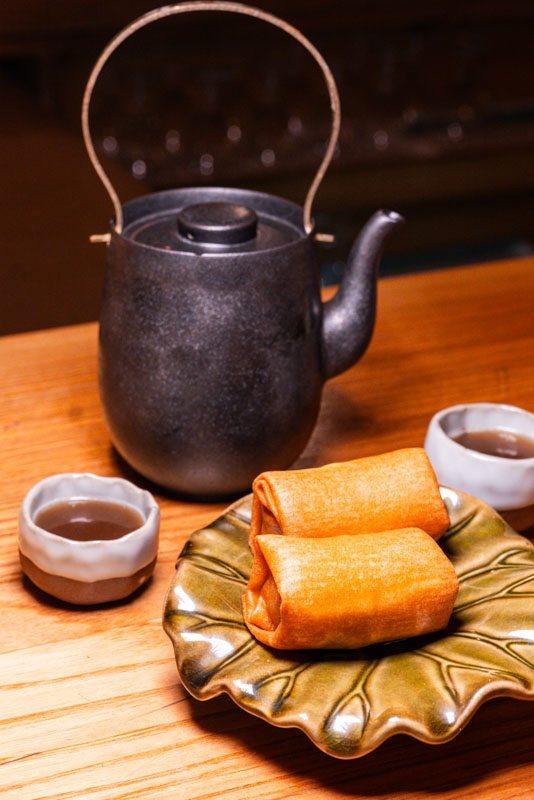
Next, Jantung Rusa Panggang. Venison heart is served with a foie gras and pine nut sauce with roasted tangerine and garlic, broccolini, and pine needle powder. It was alright. It felt more western than Malaysian-inspired.
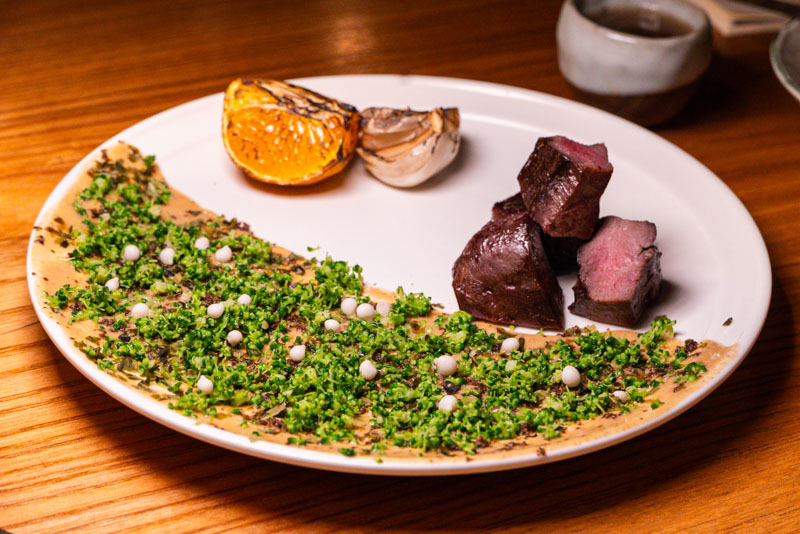
Most memorable is the Sotong Laksa, which delivers a one-two punch of flavor and aromatics. Tender squid is cut into noodles, served in a concentrated coconutty laksa broth with house-made buzai tofu (布仔豆腐), coconut meat, okra seeds, and shrimp oil. It’s absolutely delish, and I highly recommended it.
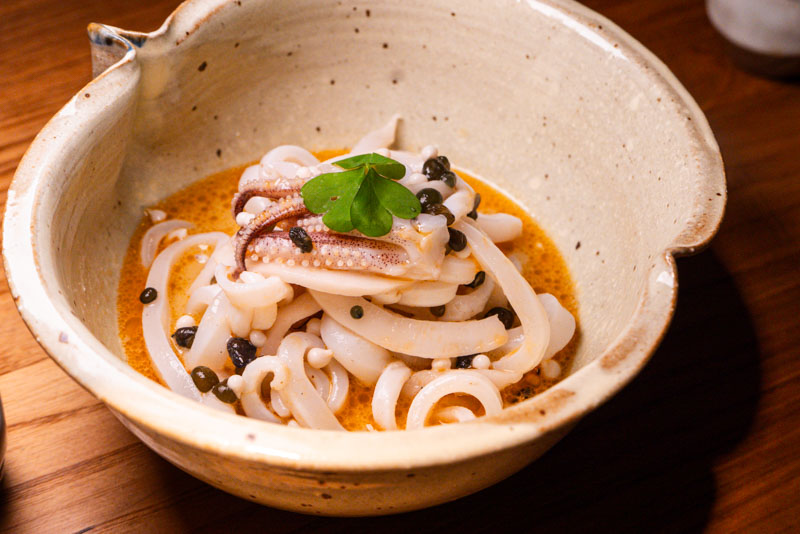
Another highlight was the pigeon. It was amazingly juicy and tender.
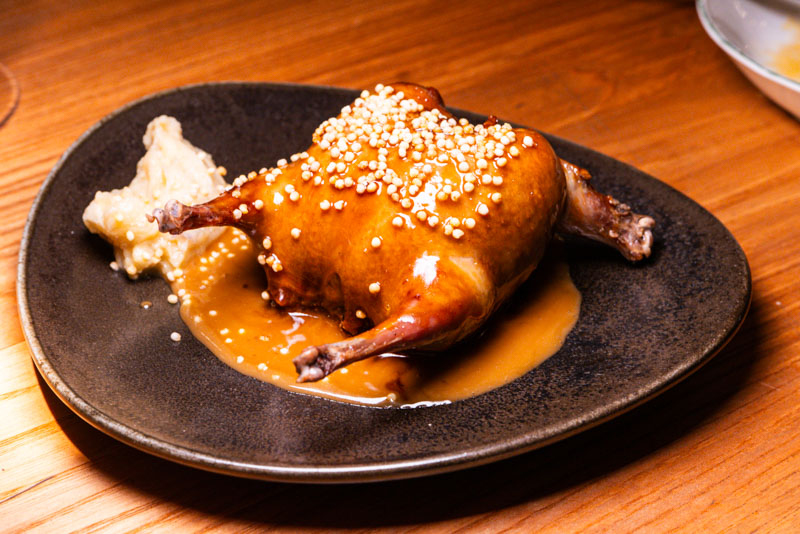
The bird was stuffed with millet, which had been cooked down to a sticky, dense consistency that was desirably comforting and soaked up the sauce nicely.
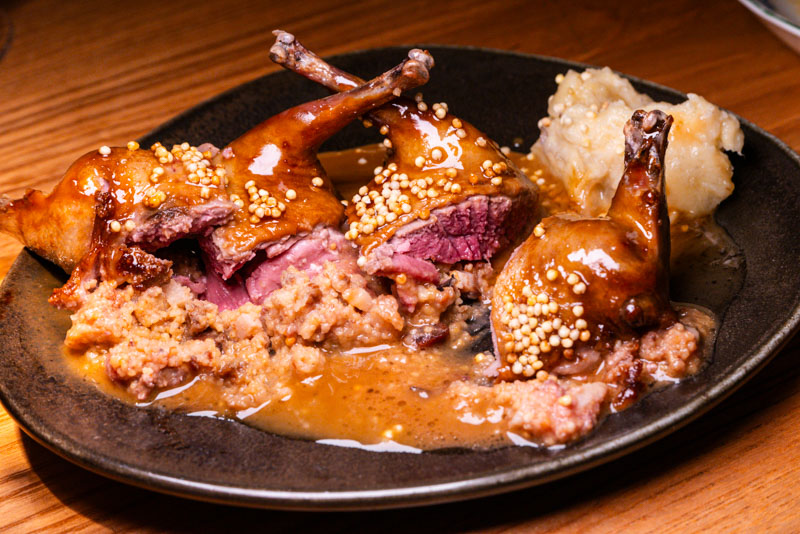
On the periphery of the plate was a large clump of durian, an additive to the pigeon to bring out nutty, complex flavors. I enjoyed it, but if you’re not a fan, it can be easily omitted.
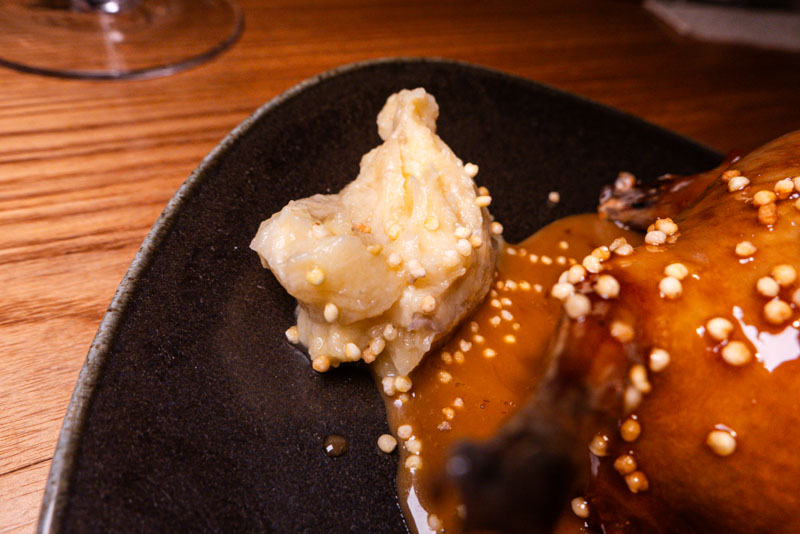
If there was one dish that didn’t quite hit the mark, it was the Kambing Sa Cha, a twist on the satay. Tender lamb shoulder is marinated with satay sauce, served with pumpkin, bell pepper and onion salad, and yogurt. It was more of a light curry than the robust flavors associated with satay.
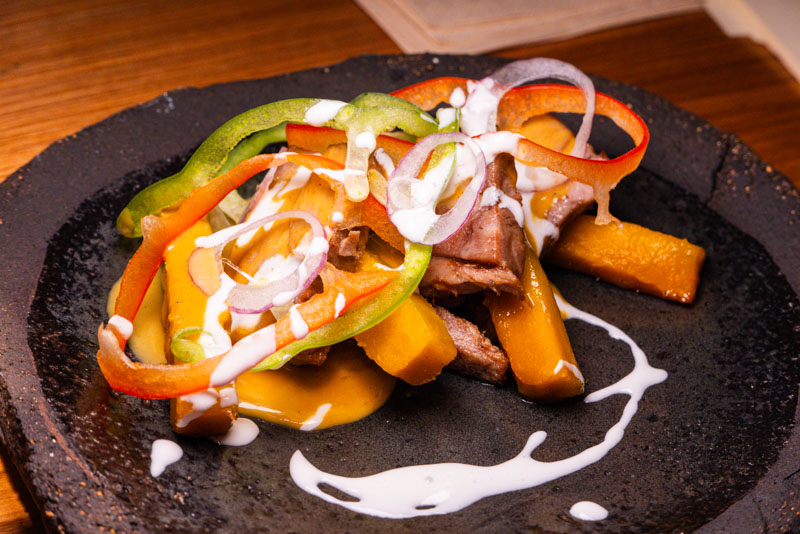
For dessert, it’s a Pineapple Ginger Flower Cake, made with turmeric and licorice root powder, topped with cream-coated pineapple. It looks heavy but is actually quite light. There’s savory hint, and the floral-spicy kick of the torch ginger flower really makes the dish.
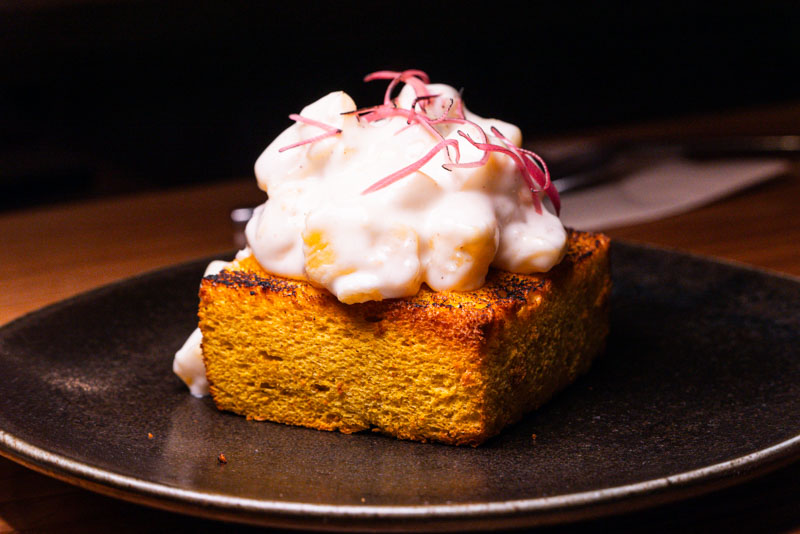
Drip wines are OHA’s thing, made by clarifying fruit and vegetable juices then infusing them with a base liquor. It’s a low ABV option. By the glass available from ¥64, bottles from ¥323.
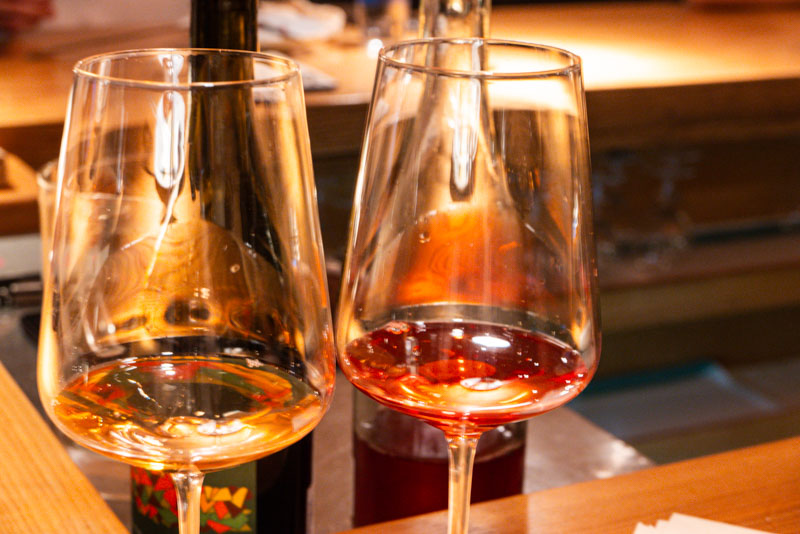
This menu will run until Chinese New Year. All dishes are available during dinner, but only some for lunch.
New menus coming up might see inspirations from Penang, Malaysia. Sign me up!
OHA Eatery
Click here to view the listing.
